Finding the ideal software developer is a formidable challenge. Given the ever-increasing demand for technical talent, it is imperative for companies to streamline their technical screening interview processes, making them efficient and effective. Within this multifaceted screening journey, the technical screening interview stands out as a pivotal stage. It is during this phase that organizations identify candidates best suited for the technical roles they are offering. In this blog, we will underscore the significance of the technical screening interview, delve into a spectrum of pre-screening queries for software developers, and explore software engineer phone screen inquiries to facilitate the discovery of the perfect software developer for your team

Chapter 1: The Significance of Technical Screening Interviews
1.1 Why Conduct Pre-Screening Interviews?
Before diving into the specific questions, it’s essential to understand the significance of conducting technical screening interviews. Pre-screening serves several critical purposes:
- Time and Resource Efficiency: Pre-screening helps you filter out candidates who may not meet the minimum requirements for the role, saving valuable time and resources in the later stages of the hiring process.
- Assessment of Technical Skills: It allows you to assess a candidate’s technical competence, ensuring that they possess the necessary skills for the job.
- Cultural Fit: Pre-screening can also provide insight into a candidate’s cultural fit within your organization, as you can ask questions about their work style, collaboration, and values.
1.2 Crafting Effective Pre-Interview Questions
Crafting effective pre-interview questions is an art. Here are some tips to keep in mind:
- Relevance: Ensure that your questions are directly related to the job requirements and the skills you’re seeking in a software developer.
- Open-Ended: Use open-ended questions that encourage candidates to elaborate on their experiences and thought processes.
- Behavioral and Technical Mix: A balanced mix of behavioral and technical questions can give you a well-rounded view of a candidate.
Chapter 2: Pre-Interview Questions for Software Developers
2.1 Behavioral Questions
Behavioral questions help you assess a candidate’s soft skills, work ethics, and compatibility with your team. Here are some examples:
Tell me about a challenging project you’ve worked on. How did you overcome obstacles, and what did you learn from the experience?
Describe a situation where you had to collaborate with a cross-functional team. What was your role, and how did you ensure effective communication and teamwork?
Can you share an example of a time when you had to meet a tight deadline? How did you manage your time and prioritize tasks to deliver the project successfully?
2.2 Technical Questions
Technical questions are crucial for evaluating a candidate’s technical knowledge and skills. Depending on the specific role, you may ask questions related to programming languages, algorithms, data structures, and more. Here are a few examples:
Explain the difference between a stack and a queue. When would you use one over the other in a software application?
Write a function in your preferred programming language to find the factorial of a given number. Explain the time and space complexity of your solution.
Can you describe the principles of object-oriented programming (OOP) and provide an example of how you’ve applied them in your previous projects?
Chapter 3: Software Engineer Phone Screen Questions
3.1 The Phone Screen Process
Phone screens are typically the next step after pre-interviews and serve as a bridge between the initial assessment and the in-person interviews. Here’s what you need to know:
Purpose: The primary purpose of a phone screen is to further assess a candidate’s technical skills, problem-solving abilities, and communication.
Time Limit: Phone screens are usually shorter in duration, ranging from 30 minutes to an hour.

3.2 Software Engineer Phone Screen Questions
During a phone screen, you can delve deeper into a candidate’s technical knowledge. Here are some phone screen questions tailored for software engineers:
- Given an array of integers, write a function to find the two numbers that add up to a specific target sum. What’s the time complexity of your solution?
- Explain the concept of database indexing and why it’s important for optimizing query performance. Can you name a few types of indexes used in relational databases?
- Walk me through the process of optimizing a slow-performing SQL query. What steps would you take to identify and rectify performance bottlenecks?
Chapter 4: Beyond the Questions – A Deeper Dive into Assessment
In our quest to find the perfect software developer for our team, we’ve explored the importance of pre-screening interviews, crafted effective pre-interview and phone screen questions, and now, in Chapter 4, we’ll delve deeper into the assessment process. Beyond the questions lies a world of critical evaluation, where we assess problem-solving skills and the all-important cultural fit and soft skills.
4.1 Assessing Problem-Solving Skills
Asking specific questions can indeed provide valuable insights into a candidate’s technical knowledge, but to truly gauge their suitability for the role, it’s essential to assess their problem-solving skills. Software development often involves overcoming complex challenges and finding innovative solutions. Here’s how you can go beyond questions and assess problem-solving abilities:
A ) Real-World Problems: One effective approach is to present a real-world problem or a coding challenge to the candidate. This challenge should mirror the kind of issues they may encounter on the job. Observe how they approach the problem, and pay attention to their problem-solving process. Look for the following qualities:
-
- Analytical Thinking: Evaluate their ability to break down a problem into smaller, manageable parts. Do they ask clarifying questions to better understand the problem?
- Creativity: Assess their creativity in finding solutions. Do they think outside the box, or do they stick to conventional approaches?
- Resourcefulness: Observe how they utilize available resources, whether it’s their existing knowledge, online research, or collaboration with others.
B ) Adaptability: How well do they adjust their approach when faced with unexpected obstacles or new information?
-
- Coding Challenges: Coding challenges are a popular way to assess a candidate’s problem-solving and coding skills. Provide them with a coding problem that relates to the role’s requirements and see how they tackle it. Key points to consider include:
- Code Quality: Assess the cleanliness, readability, and efficiency of their code.
- Edge Cases: Check if they consider edge cases and potential pitfalls in their solution.
- Optimization: Are they mindful of optimizing their code for performance and memory usage?
- Testing: Evaluate whether they write tests to validate their code’s functionality.
4.2 Cultural Fit and Soft Skills
While technical prowess is undeniably important, don’t underestimate the significance of cultural fit and soft skills in your software development team. A cohesive team with effective communication and shared values can be more productive and innovative. Here’s how to assess these critical aspects:
A ). Company Values Alignment: Every organization has its unique set of values, and finding candidates who align with these values can lead to a more harmonious work environment. During the phone screen and subsequent interviews, consider:
-
- Value-Based Questions: Ask questions that directly relate to your company’s values. For instance, if collaboration is a core value, inquire about their experiences working in teams and resolving conflicts.
- Scenario-Based Questions: Present hypothetical scenarios that require candidates to make decisions in line with your company’s values. Their responses can reveal how well they understand and align with your organizational culture.
B ). Communication Style: Effective communication is crucial in a collaborative software development environment. Pay attention to a candidate’s communication skills during the phone screen and interviews:
-
- Active Listening: Observe whether they actively listen to your questions, provide thoughtful responses, and ask clarifying questions when needed.
- Clarity: Assess how clearly and concisely they convey their ideas, both verbally and in writing. This skill is especially vital when working on projects or discussing complex technical concepts.
- Collaboration: Inquire about their experiences working with cross-functional teams, and evaluate their ability to communicate and collaborate effectively with team members from different backgrounds.
C ). Work Culture Compatibility: Every workplace has its unique work culture, which encompasses factors like work hours, flexibility, and management style. During the interview process, consider:
-
- Work Style: Ask candidates about their preferred work style and environment. Does it align with your company’s practices?
- Flexibility: Inquire about their flexibility in adapting to changing project requirements or deadlines, as this can be indicative of their adaptability to your work culture.
- Management Expectations: Discuss your management style and expectations, and see if candidates express alignment with your approach.
Read more about :
How to Test Employee Performance Using the Best Skill Assessment Software
All You Need to Understand Regarding Skill Assessment Examinations
Navigating the Landscape of Skills Assessment: A Comprehensive Guide
Conclusion
Pre-interview questions play a pivotal role in the software developer hiring process. By posing pertinent pre-interview and phone screen questions, you can pinpoint top candidates who possess the technical skills and attributes necessary for success within your organization. It’s crucial to bear in mind that while questions are fundamental, the complete evaluation process, encompassing problem-solving assessments and cultural fit considerations, should steer your ultimate hiring decision. With a thoughtfully constructed pre-interview process, you’ll be well on your path to assembling a high-performing software development team capable of propelling your company to success.






